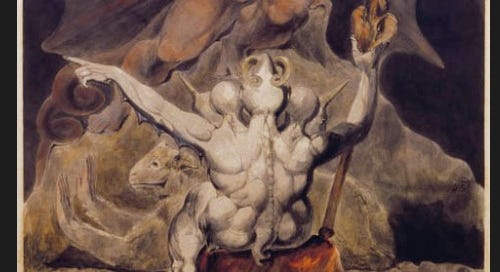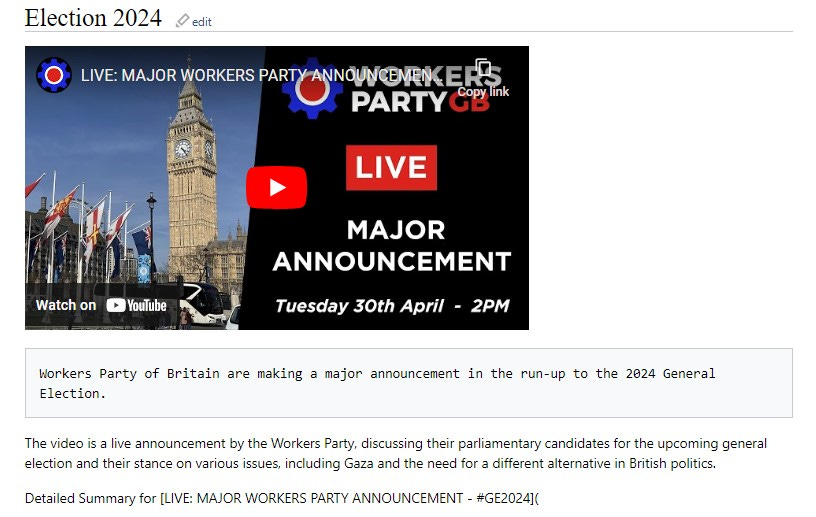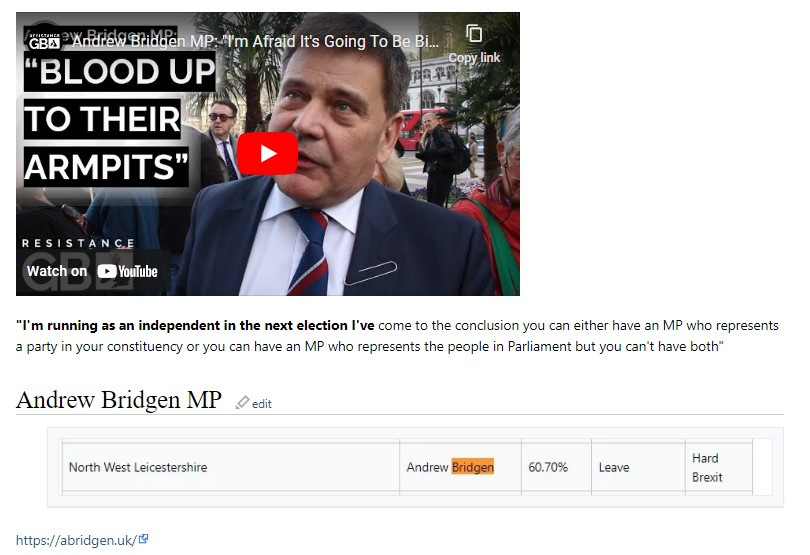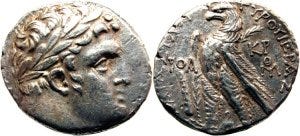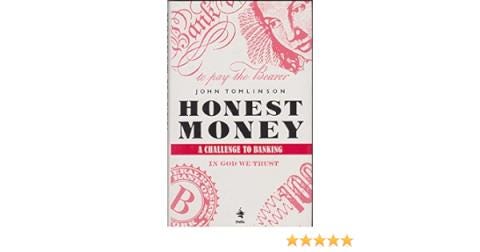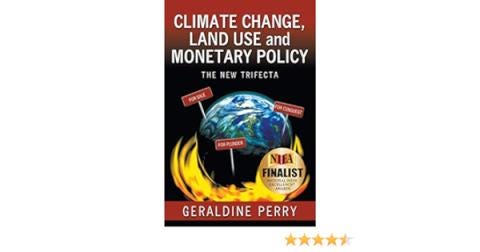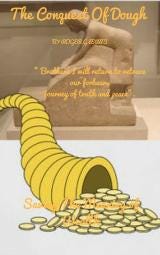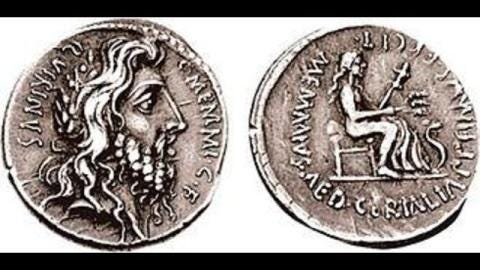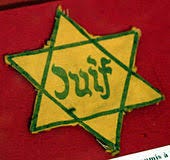Roger and Mike discuss The Money Changers and Jesus's Objections to the Rate of Exchange in the Temple
God Consciousness and free will.
https://www.blakearchive.org/copy/biblicalwc?descId=but522.1.wc.01
Title: Exploring Conversations on The Money Changers, Jesus's Objections, and Existence of God
In a recent conversation between Roger and Mike, a wide array of topics were discussed, ranging from the weather in Sweden and Wales to the implications of free will and the concept of a greater consciousness. The dialogue also delved into the historical significance of the Jewish community and its position in society, as well as the complexities of the monetary system and its relation to biblical narratives. This blog post aims to provide a detailed summary of the thought-provoking conversation and explore the multifaceted themes that were addressed.
Weather, Local Elections, and Biblical Discussions
The conversation commenced with a casual discussion about the weather in Sweden and Wales. Mike shared his experience of hay fever due to the pollen count, while highlighting the contrast between the sunny and warm weather in Sweden and the rainy conditions in Wales. The dialogue then transitioned to a discussion about local elections, where independent candidates were observed to have surpassed established political parties. This led to an exploration of George Galloway's Workers Party and its growing influence in national politics. The conversation then delved into theological discussions, particularly focusing on the concept of free will and its implications for accountability and punishment.
The Money Changers in the Temple
A significant portion of the conversation centered around the historical context of the money changers in the temple. It was noted that the money changers provided Roman currency for offerings in the temple, charging usurious exchange rates. Additionally, the temple had its own currency, known as half the silver shekel, which complied with Jewish religious rules. The presence of a major trading point within the temple added complexity to the dynamics of the exchange system. The dialogue also touched upon the speaker's bias towards the current monetary system and how their understanding of biblical stories informed their perspective.
Existence of God and Greater Consciousness
The conversation then delved into thought-provoking discussions about the existence of God and the concept of a greater consciousness. The speakers contemplated the options God has in terms of directing human behavior, acknowledging the challenges posed by the existence of multiple religions with different beliefs. The impact of human consciousness and the perception of the Jewish community in society were also explored, shedding light on the inquisitiveness of human consciousness and the desire for knowledge.
Debate on the Existence of God
In addition to the conversation between Roger and Mike, a debate between Piers Morgan and Stephen Meyer was summarized, focusing on whether there is evidence to prove the existence of God. Meyer presented compelling arguments based on the fine-tuning of the universe and the complexity of DNA, suggesting the existence of an intelligent mind behind the universe. The debate also touched upon topics such as the origin of life and the implications of information in DNA.
Insights from Robert Graves Interview
Furthermore, insights from an interview with Robert Graves by Malcom Muggeridge were included, providing a glimpse into Graves' unique perspectives on his writing process, mixed ancestry, experiences during World War II, and his views on marriage and money.
Exploring Historical and Theological Themes
The diverse range of topics discussed in the conversation between Roger and Mike provided valuable insights into historical, theological, and philosophical themes. From exploring the implications of free will to contemplating the existence of God and greater consciousness, the dialogue offered a thought-provoking exploration of complex ideas. The historical significance of the money changers in the temple and their impact on religious practices added depth to the conversation, shedding light on the intersection of economics and spirituality.
In conclusion, the conversation between Roger and Mike, along with insights from debates and interviews, offered a multifaceted exploration of topics ranging from weather and local elections to profound theological and philosophical discussions. The dialogue served as a platform for thought-provoking reflections on historical events, biblical narratives, and existential questions, providing a rich tapestry of ideas for contemplation.
References:
- Monica (https://monica.im)
- Longhaired Musings Blog (https://longhairedmusings.wordpress.com)
- PoetryNook (https://www.poetrynook.com)
The conversation between Roger and Mike, along with insights from debates and interviews, offered a multifaceted exploration of topics ranging from weather and local elections to profound theological and philosophical discussions. The dialogue served as a platform for thought-provoking reflections on historical events, biblical narratives, and existential questions, providing a rich tapestry of ideas for contemplation.
0:12 / 1:52:30
Roger and Mike discuss The Money Changers and Jesus's Objections to the Rate of Exchange in the Temple
The video is a conversation between two individuals discussing topics such as hay fever, weather, local elections, the Bible, and the Jewish community's position in society.
Detailed Summary for [Mike and Rog Catch up. Meeting Recording](
[Monica](https://monica.im)
[00:00](
Mike and Rog discuss the weather in Sweden and Wales.
- Mike mentions experiencing hay fever due to the pollen count.
- The weather in Sweden has been sunny and warm, while it has been rainy in Wales.
- Mike hopes for a change in weather in Wales.
- Rog is located in South Wales, just outside Cardiff.
- Miskin, where Rog lives, is a small town near Junction 34 of the M4.
- There is an old medieval Church in Miskin and a sister church in Clant Trent, where the Royal Mint is located.
- Rog mentions the presence of a shopping center and retail parks in Pontyclun, making it a regional shopping hub.
[14:02](
The section discusses the comprehensive record of the internet since 2000, the preference for email communication, the success of independent candidates in local elections, and the emergence of George Galloway's Workers Party.
- The record of the internet goes back to 2000 and covers a wide range of content.
- Email is the preferred mode of communication for sending the record.
- Independent candidates have performed well in local elections, surpassing the Green Party and Reform Party.
- George Galloway's Workers Party is gaining traction in national politics.
https://wikitacticalvoting.miraheze.org/wiki/Main_Page#Election_2024
https://wikitacticalvoting.miraheze.org/wiki/Main_Page#Election_2024
[28:06](
The speaker discusses the concept of free will and its implications in terms of accountability and punishment.
- The speaker mentions Richard Dawkins and his argument for free will.
- They express their preference for Pelagius' arguments over St. Augustine's limited view of free will.
- The speaker highlights the importance of free will for holding individuals accountable for their actions.
- They mention the historical split between the Eastern Orthodox and Roman Catholic Church, as well as similar splits in other religious doctrines.
[42:10](
The money changers in the temple provided the Roman currency for offerings, charging usurious exchange rates, while the temple had its own currency without any iconic figure on it.
- Money changers provided the Roman currency for offerings in the temple.
- The money changers charged usurious exchange rates.
- The temple had its own currency, known as half the silver shekele, which complied with Jewish religious rules.
- The temple was also a major trading point.
[56:12](
The speaker discusses their bias towards the current monetary system and how their understanding of biblical stories informs their perspective.
- They mention reading material from an anti-usury Catholic Canadian organization.
- The speaker acknowledges not being an expert on the gospels or religious debates surrounding usury.
- They suggest that biblical stories may have been constructed to support certain ideas at the time they were written.
- The speaker differentiates between the Old Testament, which comes from an oral tradition, and the New Testament, which may contain embellishments.
[01:10:16](
The speaker discusses the options God has in terms of directing human behavior and how the existence of various religions with different beliefs makes it difficult to determine what God expects.
- God has the option to either direct human behavior or let humans do as they please.
- If God chose not to direct human behavior, all religions would be redundant.
- If God wanted humans to behave in a certain way, he would have hard-wired it into their brains.
- The existence of multiple religions with different beliefs makes it challenging to determine what God expects.
[01:24:17](
The discussion revolves around the concept of a greater consciousness and its impact on individuals and the world.
- Interacting with the world and others brings a sense of awe and responsibility.
- Understanding the impact of actions on the world unfolds a code for existing congruently.
- Belief in the power of prayer and collective consciousness is emphasized.
- The idea of God as a consciousness rather than a being is discussed.
[01:38:25](
The discussion explores the inquisitiveness of human consciousness and the perception of the Jewish community in society.
- Inquisitiveness is seen as part of human consciousness and the desire for knowledge.
- The Jewish community is discussed in terms of their perceived special position in society.
- The concept of anti-Semitism is questioned and compared to racism.
- The historical role of the Court Jew as a scapegoat is mentioned.
https://web.archive.org/
Sec. VI. And do not think I say this as an enemy proclaiming war against the money-lenders,
“For never did they lift my cows or horses,” [890]
but merely to prove to those who too readily borrow money what disgrace and servitude it brings with it, and what extreme folly and weakness it is. Have you anything? do not borrow, for you are not in a necessitous condition. Have you nothing? do not borrow, for you will never be able to pay back. Let us consider either case separately. Cato said to a certain old man who was a wicked fellow, “My good sir, why do you add the shame that comes from wickedness to old age, that has so many troubles of its own?” So too do you, since poverty has so many troubles of its own, not add the terrible distress that comes from borrowing money and from debt; and do not take away from poverty its only advantage over wealth, its freedom from corroding care. For the proverb that says, “I cannot carry a goat, put an ox on my shoulder,” has a ridiculous ring. Unable to bear poverty, are you going to put on your back a money-lender, a weight hard to carry even for a rich man? How then, will you say, am I to maintain myself? Do you ask this, having two hands, two legs, and a tongue, in short, being a man, to love and be loved, to give and receive benefits? Can you not be a schoolmaster or tutor, or porter, or sailor, or make coasting voyages? Any of these ways of getting a livelihood is less disgraceful and difficult than to always have to hear, “Pay me that thou owest.”
Good to chat earlier Mike Our last recorded chat was at the 2019 UK general election
I. Introduction
A. Purpose of the Discussion
B. Background of the General Election in the UK
II. Constituency Analysis
A. Overview of the Constituency
B. Standout Issues in the Constituency
C. Political Candidates and Parties in the Constituency
III. Voter Sentiment and Standout Issues
A. Overview of Voter Sentiment
B. Key Issues of Concern
1. Brexit
2. National Health Service (NHS)
3. Education
4. Law and Order
IV. Brexit Implications
A. Analysis of Boris Johnson's Brexit Slogan
B. Implications of the Revised Brexit Treaty
C. Public Perception of Boris Johnson's Brexit Approach
V. Economic and Financial Considerations
A. Impact of National Debt
B. Analysis of Conservative Government's Financial Management
C. Banking and Financial Market Stability
VI. International Relations and Defense
A. Impact of US Presidential Views on Brexit
B. NATO and Defense Considerations
VII. Election Outcome Prediction
A. Likelihood of a Hung Parliament
B. Potential Scenarios for Election Results
VIII. Conclusion
A. Summary of Key Points Discussed
B. Consideration of Long-Term Implications
C. Acknowledgment of Uncertainty in Election Outcome
In a recent conversation with an anonymous friend, we delved into a discussion about the upcoming general election in the UK. The conversation provided insights into the prevailing sentiments and concerns surrounding the election, shedding light on various issues and perspectives.
The discussion began with an analysis of the constituency where my anonymous friend resides. It was revealed that the long-standing MP had stepped down, leading to the entry of a new Conservative candidate. The constituency, known for its staunch conservative voting history, is now witnessing a shift in dynamics, with the presence of other party representatives including the Brexit Party. The impending election has sparked conversations around standout issues such as Brexit, the NHS, and other fundamental concerns.
The conversation then delved into the prevailing sentiments among the populace. It was noted that while the political landscape is rife with dramatics and partisan bickering, the general public seems to be more focused on fundamental issues such as healthcare, education, and law and order. The sentiment expressed by my anonymous friend resonated with the notion that voters are seeking tangible solutions to these pressing concerns, rather than being swayed by political theatrics.
The discourse then shifted towards an in-depth analysis of Brexit and the proposed approach by Boris Johnson. It was expressed that there is a prevailing sentiment for a "clean break" from the EU, with skepticism surrounding the current proposed treaty and its compromises. The conversation highlighted the need for clarity and transparency in communicating the intricacies of Brexit negotiations to the public.
As the discussion progressed, it ventured into the realm of financial markets and banking systems. The conversation provided insights into the complexities of derivative contracts, banking operations, and their impact on the broader economy. There was a critical analysis of the national debt, its trajectory under the current administration, and its implications on economic stability.
Furthermore, the discourse touched upon the influence of global politics, particularly the stance of leaders such as Donald Trump on Brexit and its implications for the UK. The conversation underscored the significance of geopolitical stability and its impact on economic and political decision-making.
In conclusion, the conversation provided a comprehensive understanding of the prevailing sentiments and concerns surrounding the general election in the UK. It shed light on the need for clarity, transparency, and tangible solutions to address fundamental issues such as healthcare, education, law and order, and economic stability. The insights shared by my anonymous friend offered valuable perspectives on the complexities and nuances of the political and economic landscape, underscoring the need for informed decision-making and prudent governance.
Can This Man PROVE That God Exists? Piers Morgan vs Stephen Meyer
Robert Graves Interviewed By Malcom Muggeridge 1965
there's a difference between religion
7:47
and Ecclesiastes ISM trend as a for was
7:50
the makings called a 4-bit word and I'm
7:54
not an ecclesiastic do i I know my Bible
Why Were There Money Changers in the Temple?
All Jewish men over the age of 20 were required to pat a half-shekel tax to the Temple by the 25th of Adar. “If one chose to pay the tax in the Temple, there were 13 shofar-chests in the Temple court which were used to collect different offerings (m. Shekalim 6: 5). One was inscribed ‘New shekel dues’ which was for that year” (Franz, 82; cf., Köstenberger, John, 105).
m.Seqal 1.3 On the fifteenth of that same month [Adar] they set up money changers’ tables in the provinces. On the twenty-fifth [of Adar] they set them up in the Temple. Once they were set up in the Temple, they began to exact pledges [from those who had not paid the tax in specie]. (Tr. Neusner, The Mishnah, 252).
Moneychangers were required because the half-shekel Temple Tax had to be paid with a Tyrian tetradrachma. Many popular preachers will explain this money exchange by observing that the Tyrian coin did not have the image of a Roman emperor who claimed to be God on it, making it more acceptable for the Jewish Temple tax (virtually every commentary says this!).
But Jerome Murphy-O’Connor has disputed this majority opinion by pointing out that the Tyrian coin used an image of the god Melkart (Herakles). Melkart (“King of the city”) was more or less equivalent to Baal of the Hebrew Bible. The coin was replaced during the revolt against Rome by the Judean shekel, indicating the rebels thought the coin was offensive.
Perhaps there was a more practical reason coins were exchanged for Tyrian tetradrachma: this coin had a higher silver content than other coins (Carson, John, 178). According to Franz, “These coins average 14.2 gm in weight and were minted with good silver” (82).
https://longhairedmusings.wordpress.com/2019/01/12/the-irony-of-reading-plutarch/
https://longhairedmusings.wordpress.com/2016/02/25/usury-hells-fuel-and-mans-oppressor/
https://www.huffpost.com/entry/jesus-and-the-international-currency-exchange-trade_b_6785168
Josephus, the Jewish historian, tells a story of Rabbi Shimon ben Gamaliel (son of Gamaliel, Paul's personal spiritual trainer), who went on a campaign against price gouging. But unfortunately stories of someone trying to protect the poor from the practice are rare. More common was the reference in the Jewish Mishna that the costs of birds rose so fast in Jesus' time that women began lying or aborting their babies to avoid the required and punitive fees.
The changers (kermatistēs) were needed because neither the animal offerings nor the temple tax could be paid with the Roman currency in use for most of the national commerce, because it had pictures (read "graven images") of the Roman Emperor on them who claimed to be a god. So, the money had to be changed into usable local currency.
The money changers sat outside of the temple proper, in the "court of the gentiles." They bought and sold money as a part of the functioning of the general economy. Jerusalem, in fact, required a money changing industry because it was an international city that dealt in a number of currencies and people had to have a system by which they could buy and sell them. They used the money changers both for basic commerce and also for currency speculation. Insider traders could make fortunes when a new Roman battalion came to town carrying a glut of new coins which depressed the value of the local currencies. Ched Myers calls the money changers "street level representatives of banking interests of considerable power." Indeed, because there was no one else to perform the function, the money changers were the banks in first century Palestine.
However, the Money Changers were also corrupt. They would not only exaggerate the fees they had to charge for the transactions, they would also inflate the exchange rate. The result was that for a poor person, the Money Changer's share of the temple tax was about one day's wages and his share of the transaction from international to local currency was about a half-day's wages. And that was before they purchased their unblemished animals for sacrifice and then had to buy them again (at an enhanced price) because the inspector found a blemish or otherwise inadequate for the offering.
https://www.poetrynook.com/poem/everlasting-gospel-0
The Vision of Christ that thou dost see
Is my Visions Greatest Enemy
Thine has a great hook nose like thine
Mine has a snub nose like to mine
Thine is the friend of All Mankind
Mine speaks in parables to the Blind
Thine loves the same world that mine hates
Thy Heaven doors are my Hell Gates
Socrates taught what Melitus
Loathd as a Nations bitterest Curse
And Caiphas was in his own Mind
A benefactor to Mankind
Both read the Bible day & night
But thou readst black where I read white
OMG!!! 😂😂😂😂
This guy Jared Bernstein is literally the Chair of the Council of Economic Advisers, the main agency advising Biden on economic policy!!! 🤪
Open Emoji Keyboard
Current selected sort order is Most relevantMost relevant
Roger LewisView Roger Lewis’ profile (He/Him) • YouSurveyor, Valuer, Real Estate Entrepreneur
4m
Not the Brightest tool in the box is he.
Start Here.
A reading List
May 8 2018 at 1:14 pm
Tomlinson’s Honest Money https://www.amazon.com/Honest-Money-Challenge-John-Tomlinson/dp/1898271380
and future money by James Robertson http://www.jamesrobertson.com/futuremoney.htm
https://longhairedmusings.wordpress.com/2018/05/08/mmt-and-money-creation-reading-lists-my-suggestions-conquestofdough/
Honest Money: A Challenge to Banking
amazon.com
Like
Reply3 Replies3 Replies on Roger Lewis’ comment
Roger LewisView Roger Lewis’ profile (He/Him) • YouSurveyor, Valuer, Real Estate Entrepreneur
1s
Roger Lewis https://www.amazon.com/Climate-Change-Land-Monetary-Policy/dp/1600479278
https://grubstreetinexile.substack.com/p/qed-post-climate-change-land-use-686?r=l1oox
Climate Change, Land Use and Monetary Policy: The New Trifecta
amazon.com
Like
Reply
Roger LewisView Roger Lewis’ profile (He/Him) • YouSurveyor, Valuer, Real Estate Entrepreneur
1s
http://conquestofdough.weebly.com/
The Conquest Of Dough A Novel with Multimedia Web Site
conquestofdough.weebly.com
Like
Reply
Roger LewisView Roger Lewis’ profile (He/Him) • YouSurveyor, Valuer, Real Estate Entrepreneur
1s
IF DIRT WERE DOLLARS , DON HENLEY.
https://www.bitchute.com/video/81LWScIBycNY/
Like
Reply
Open Emoji Keyboard
Remove media
If Dirt were Dollars , Don Henley.
https://longhairedmusings.wordpress.com/2019/01/20/if-dirt-weredollars-
April 15, 2018
ZIONISM, CALVINISM AND THE “JEWISH NATIONAL HOME” IN PALESTINE INTO A “JEWISH COMMONWEALTH” NOT SAFE FOR SNOWFLAKES. #OCCUPYTHEEUROPEANSPRING
ZIONISM, CALVINISM AND THE “JEWISH NATIONAL HOME” IN PALESTINE INTO A “JEWISH COMMONWEALTH” (THERESA MAY THE NEW LORD PROTECTOR?)
April 9, 2019
RELATIVISTIC DIALECTICS RELATIVISTIC DIALECTICS GEORGES METANOMSKI ON THE 50’TH ANNIVERSARY OF THE LIBERATION OF AUSCHWITZ . #BREXITEERS AND CLIMATE DENIERS THE NEW JEWS? #COVIDPURPOSE #5GKILLGRID #VAXXED #TWOFINGERS2BRINO @WIKI_BALLOT #4PAMPHLETEERS @GRUBSTREETJORNO @SURVATION @FINANCIALEYES #IABATO @JOEBLOB20 #COVIDBOLLOCKS #CODSWALLOP
“Wer Jude ist, entscheide ich” – “It’s me who decides who is a Jew”.
Who decides what is Brexit?
who decides what is online harm?
RELATIVISTIC DIALECTIC
I shall present here an example which shows the nonsense of the absolute classification criterion “Jew” and of the absolute proposition: “This man is a Jew”.
From the race point of view, it is obvious nonsense, as nobody has ever observed a “Jewish” gene.
One may certainly have a Jewish culture, speak Yiddish, Hebrew or ladino and tell Jewish jokes. However, culture is clearly a relativistic concept. Nazis may have used it as an indicator, but never as an essential, absolute criterion of discrimination. A large part of Jews murdered in Auschwitz had little or nothing to do with the Jewish culture. Some were Catholic priests, some have heard for the first time from the Nazis or from the blackmailers that they were Jews.
The criterion of the Jewish religion is equally absurd. According to the Jewish law is Jew who has a Jewish mother, or who has been converted by a Jewish rabbin. However, in order to be sure that my mother is Jewish, I have to ascertain that she had herself a Jewish mother, or had been converted by a Jewish rabbin. The same holds of course for the converting rabbin. A clear case of a vicious circle.
Consequently, the absolute concept “Jew” is empty and, as such, may get any arbitrary meaning. Heidrich understood it perfectly when he declared: “Wer Jude ist, entscheide ich” – “It’s me who decides who is a Jew”.
If we want to avoid Auschwitz in the future, we must abolish situations in which a human being may classify and discriminate other ones upon absolute, arbitrary criteria. In other words, we must extend the Relativistic Reason over the human/social domain and may admit only relative, demonstrable propositions in this domain as well. This calls, of course, into question nearly all established ideological and political structures, which are based upon absolute principles.


